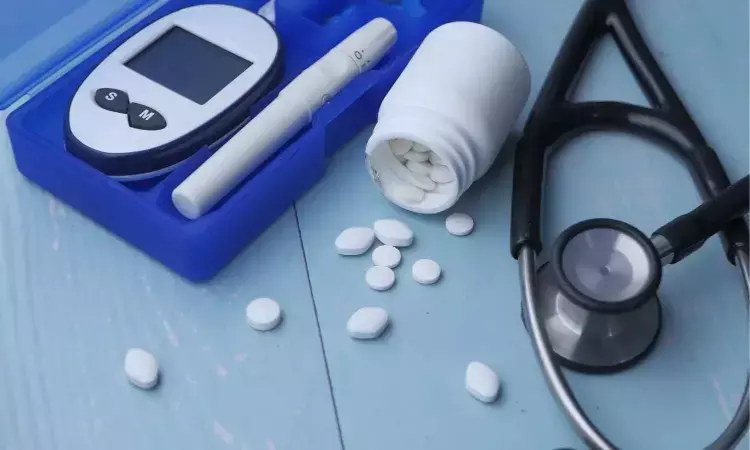- Home
- Medical news & Guidelines
- Anesthesiology
- Cardiology and CTVS
- Critical Care
- Dentistry
- Dermatology
- Diabetes and Endocrinology
- ENT
- Gastroenterology
- Medicine
- Nephrology
- Neurology
- Obstretics-Gynaecology
- Oncology
- Ophthalmology
- Orthopaedics
- Pediatrics-Neonatology
- Psychiatry
- Pulmonology
- Radiology
- Surgery
- Urology
- Laboratory Medicine
- Diet
- Nursing
- Paramedical
- Physiotherapy
- Health news
- Fact Check
- Bone Health Fact Check
- Brain Health Fact Check
- Cancer Related Fact Check
- Child Care Fact Check
- Dental and oral health fact check
- Diabetes and metabolic health fact check
- Diet and Nutrition Fact Check
- Eye and ENT Care Fact Check
- Fitness fact check
- Gut health fact check
- Heart health fact check
- Kidney health fact check
- Medical education fact check
- Men's health fact check
- Respiratory fact check
- Skin and hair care fact check
- Vaccine and Immunization fact check
- Women's health fact check
- AYUSH
- State News
- Andaman and Nicobar Islands
- Andhra Pradesh
- Arunachal Pradesh
- Assam
- Bihar
- Chandigarh
- Chattisgarh
- Dadra and Nagar Haveli
- Daman and Diu
- Delhi
- Goa
- Gujarat
- Haryana
- Himachal Pradesh
- Jammu & Kashmir
- Jharkhand
- Karnataka
- Kerala
- Ladakh
- Lakshadweep
- Madhya Pradesh
- Maharashtra
- Manipur
- Meghalaya
- Mizoram
- Nagaland
- Odisha
- Puducherry
- Punjab
- Rajasthan
- Sikkim
- Tamil Nadu
- Telangana
- Tripura
- Uttar Pradesh
- Uttrakhand
- West Bengal
- Medical Education
- Industry
Findings support repurposing Rheumatoid Arthritis Drug Auranofin for Diabetes

Low-grade, sustained inflammation in white adipose tissue (WAT) characterizes obesity and coincides with type 2 diabetes mellitus (T2DM). However, pharmacological targeting of inflammation lacks durable therapeutic effects in insulin-resistant conditions.Although scientists have identified definitive associations between inflammation in white adipose tissue and insulin resistance in humans and rodents, broad anti-inflammatory treatments lack durable clinical efficacy on diabetes.
Researchers at Baylor College of Medicine and collaborating institutions discovered that the rheumatoid arthritis drug auranofin can potentially be repurposed to improve diabetes-associated symptoms.In the current study, the researchers explored in more detail this association between inflammation and diabetes by looking for existing drugs that might affect both conditions.
The study, which was conducted in mice, appeared today in the journal Cell Metabolism.
"We computationally screened a small-molecule dataset and identified auranofin, an FDA-approved drug that has been used to treat rheumatoid arthritis, a condition involving inflammation," said first and co-corresponding author Dr. Aaron R. Cox, instructor of medicine-endocrinology, diabetes and metabolism at Baylor. "Auranofin exerts anti-inflammatory properties, which many people suspected would be beneficial in obesity and diabetes; however, nothing was really known about how it might affect metabolism."
The team evaluated the metabolic effects of auranofin in a mouse model of diabetes in which the animals consume a high-fat diet.
"We discovered that auranofin has anti-inflammatory and anti-diabetic effects that are independent from each other," said co-corresponding author Dr. Sean Hartig, associate professor of medicine-endocrinology, diabetes and metabolism and molecular and cellular biology at Baylor. Hartig also is a member of Baylor's Dan L Duncan Comprehensive Cancer Center.
"Auranofin improved insulin sensitivity, or the body's ability to respond to insulin to keep blood sugar at healthy levels. The drug also normalized obesity-associated changes such as hyperinsulinemia – blood insulin levels that are higher than normal-in the mouse model. In addition, we found that auranofin accumulation in white adipose tissue reduced inflammatory responses without altering body composition in obese mice."
Looking into the mechanism of these metabolic changes, the team discovered that the anti-diabetic effects of auranofin involved reduction of leptin levels. Leptin is a hormone whose levels markedly increase in obesity, contributing to insulin resistance and diabetes. In addition, auranofin restored white adipose tissue's ability to respond to catecholamines, which are signals that increase metabolic activities in adipose tissue, triggering the burning of lipids at a higher rate.
"These changes coupled together contribute to the overall improvement in insulin sensitivity of the mice, leading to blood glucose control, which is the ultimate goal of diabetes treatments," Cox said. "High levels of glucose in the blood are detrimental to many tissues in the body. Uncontrolled, diabetes can lead to organ failure."
"We are very excited about these findings; however, more research will be needed to determine an effective strategy to translate them to the clinic," said Hartig.
Reference:
Aaron R. Cox, Peter M. Masschelin, Pradip K. Saha, Jessica B. Felix, Robert Sharp, Zeqin Lian, Yan Xia, Natasha Chernis, David A. Bader, Kang Ho Kim, Xin Li, Jun Yoshino, Xin Li, Gang Li, Zheng Sun, Huaizhu Wu, Cristian Coarfa, David D. Moore, Samuel Klein, Kai Sun, Sean M. Hartig, The rheumatoid arthritis drug auranofin lowers leptin levels and exerts antidiabetic effects in obese mice, Cell Metabolism https://doi.org/10.1016/j.cmet.2022.09.019
Dr Kamal Kant Kohli-MBBS, DTCD- a chest specialist with more than 30 years of practice and a flair for writing clinical articles, Dr Kamal Kant Kohli joined Medical Dialogues as a Chief Editor of Medical News. Besides writing articles, as an editor, he proofreads and verifies all the medical content published on Medical Dialogues including those coming from journals, studies,medical conferences,guidelines etc. Email: drkohli@medicaldialogues.in. Contact no. 011-43720751


